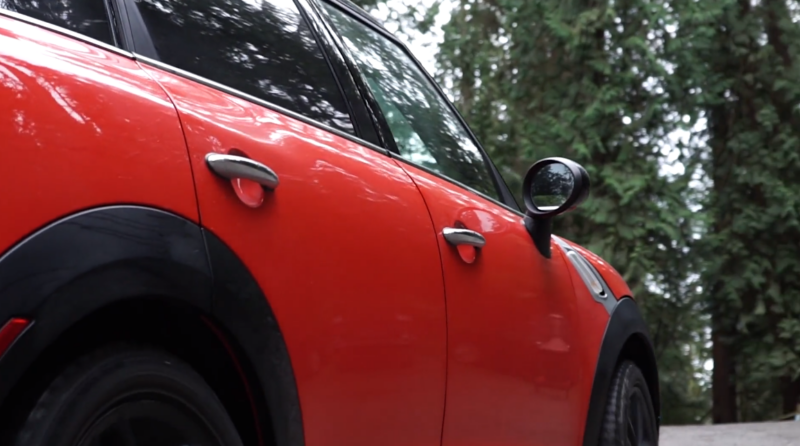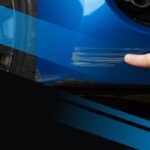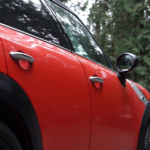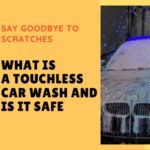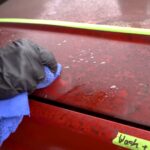If you’re considering a new look for your car, you’ve probably come across the age-old debate: car wrap vs paint. These two popular options can be a head-scratcher for car owners looking to refresh their vehicle’s appearance. In this comprehensive guide, we’ll delve into the world of car wraps and paint jobs, comparing time, costs, and durability to help you make the best decision for your ride.
Car Wrap Explained
Car wraps are adhesive vinyl films applied over a vehicle’s original paintwork. These wraps come in a variety of colors, finishes, and designs, allowing for endless customization possibilities. Car wraps can be done in solid colors, custom prints, or even with a clear protective layer known as paint protection film (PPF). Wraps are a popular choice for businesses looking to advertise on their fleet vehicles, as well as for individuals who want a fresh look without the commitment of a paint job.
Paint Job Explained
A car paint job involves sanding down the vehicle’s original paint and applying a new layer of paint. The process may also include primer, the basecoat, and clear coat layers, depending on the desired result. Paint jobs can range from basic single-color applications to intricate, custom designs with multiple colors and special effects. A quality paint job requires skill and expertise to ensure that the final product is both visually stunning and durable.
Time: How Long Does Each Take?
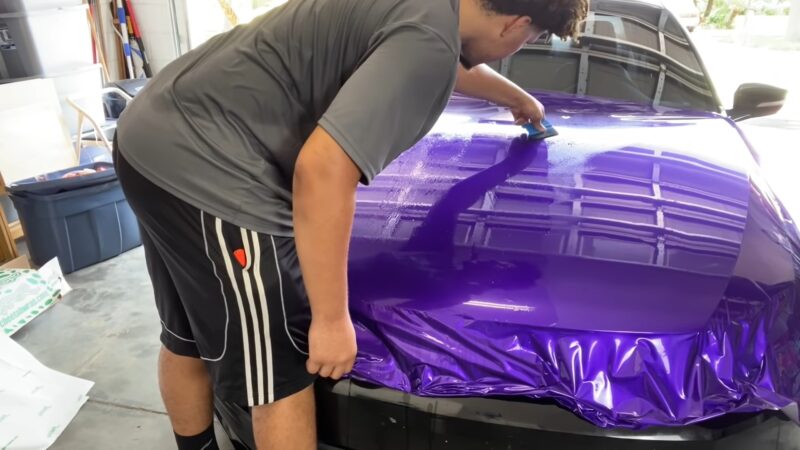
Car Wrap
Car wraps typically take less time to complete than a paint job. The process involves cleaning the car’s surface, applying the vinyl wrap, and trimming the excess material. Depending on the complexity of the design and the size of the vehicle, a wrap can be completed in as little as one day. However, more intricate designs or full-vehicle wraps may take up to a week.
Car Paint Job
Paint jobs are generally more time-consuming than wraps due to the multiple steps involved. The car must be sanded, cleaned, and prepped before the painting process can begin. A basic single-color paint job may take anywhere from a few days to a week, while custom paint jobs with intricate designs may take several weeks to complete.
Costs: Breaking Down the Expenses
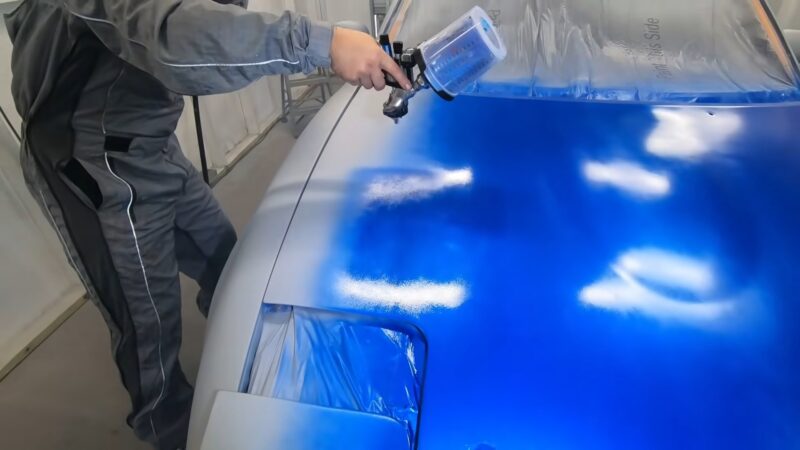
Car Wrap
The cost of a car wrap can vary depending on factors such as the size of the vehicle, the type of wrap material used, and the complexity of the design. On average, a full car wrap can range from $1,500 to $5,000. Partial wraps or smaller designs will generally cost less. Keep in mind that high-quality wrap materials and professional installation are essential for a long lasting and visually appealing result.
Car Paint Job
The cost of a car paint job also varies depending on factors like the size of the vehicle, paint quality, and complexity of the design. A basic, single-color paint job can start around $1,000, while high-quality paint jobs with custom designs can easily surpass $10,000. As with car wraps, it’s crucial to invest in quality materials and professional services for the best results.
Durability: Which Option Lasts Longer?
Car Wrap
Car wraps are designed to be durable, with most high-quality wraps lasting between 5 to 7 years. However, the lifespan of a car wrap can be influenced by factors such as exposure to UV rays, weather conditions, and proper care and maintenance. One advantage of car wraps is that they can be easily removed and replaced if they become damaged or if you want to change the design.
Car Paint Job
A high-quality car paint job can last for several years, with some lasting up to 10 years or more when properly maintained. However, paint jobs are more susceptible to scratches, chips, and fading, which can impact the overall appearance of the vehicle. Additionally, repairing a damaged paint job can be more time-consuming and costly compared to fixing a car wrap.
Pros and Cons: Paint
- Quick installation time
- Reversible and easily replaceable
- Wide variety of colors and finishes
- Can protect the original paint underneath
- Lower cost for customization
- Less durable than a high-quality paint job
- It may not look as seamless as paint in some cases
- It can be damaged by extreme heat or cold
Pros and Cons: Paint
- Longer-lasting with proper care and maintenance
- It can provide a more seamless, high-quality appearance
- Better suited for intricate, custom designs
- Longer installation time
- More expensive, especially for custom designs
- It can be more challenging and costly to repair
Which Option Is Right for You?
When it comes to deciding between a car wrap and a paint job, there are several factors to consider. Here are some questions to ask yourself:
- What’s your budget? If you’re looking for a more cost-effective option, a car wrap may be the better choice, especially if you’re interested in a simple design or color change.
- How long do you plan to keep the car? If you’re considering selling your car in a few years, a wrap might be more practical, as it can be easily removed and may even help protect the original paintwork.
- Are you looking for a custom design? If you want a truly unique look with intricate detailing or special effects, a custom paint job may be the way to go.
- Do you prioritize durability? If you want a longer-lasting solution, a high-quality paint job may be worth the investment.
Ultimately, the decision between a car wrap and a paint job will come down to your personal preferences, budget, and desired look. Both options can provide stunning results when done by skilled professionals using quality materials. Be sure to research local service providers and their portfolios to ensure that you’re getting the best possible service for your vehicle’s makeover.
Maintenance Tips
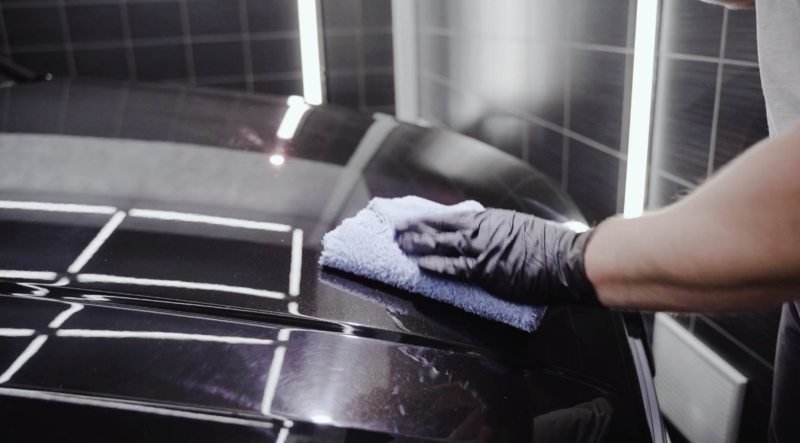
Whether you choose a car wrap or a paint job, proper care and maintenance will be essential in ensuring that your investment lasts as long as possible. Here are some tips for caring for both options:
Car Wrap Maintenance
- Wash your car regularly to remove dirt, dust, and grime that can cause damage to the wrap. Use a gentle car wash soap and a soft cloth or sponge to avoid scratching the vinyl.
- Avoid using high-pressure washers, as they can potentially lift the edges of the wrap or cause damage to the material.
- Keep your car parked in a garage or under a car cover when not in use to minimize exposure to UV rays and other environmental factors that can shorten the lifespan of your wrap.
- If your wrap becomes damaged, consult a professional for repair or replacement, as attempting to fix the issue yourself can result in further damage.
Paint Job Maintenance
- Regularly wash your car using a gentle car wash soap and a soft cloth or sponge to prevent dirt and grime from accumulating on the surface, which can lead to scratches and dullness.
- Apply a high-quality wax or paint sealant to protect the paint from UV rays, oxidation, and environmental contaminants.
- Avoid parking your car in direct sunlight for extended periods, as this can contribute to fading and premature paint deterioration.
- Inspect your paint job regularly for signs of chips, scratches, or other damage, and address any issues promptly to prevent further deterioration.
Closing Thoughts
The choice between a car wrap and a paint job ultimately depends on your personal preferences, budget, and desired outcome. Both options can transform the look of your vehicle, but each comes with its own set of pros and cons.
Take the time to consider the factors discussed in this article, and consult with local professionals to determine the best solution for your specific needs. With proper care and maintenance, you can enjoy a stunning and long-lasting result that will have heads turning wherever you go.

